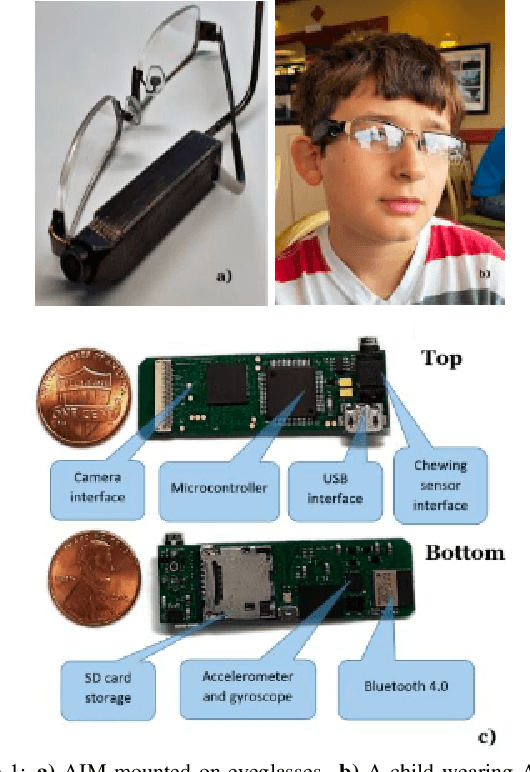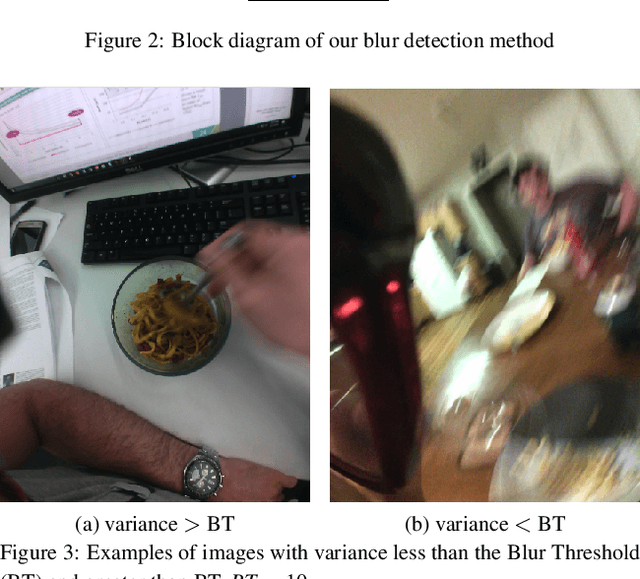Improving Food Detection For Images From a Wearable Egocentric Camera
Paper and Code
Jan 19, 2023



Diet is an important aspect of our health. Good dietary habits can contribute to the prevention of many diseases and improve the overall quality of life. To better understand the relationship between diet and health, image-based dietary assessment systems have been developed to collect dietary information. We introduce the Automatic Ingestion Monitor (AIM), a device that can be attached to one's eye glasses. It provides an automated hands-free approach to capture eating scene images. While AIM has several advantages, images captured by the AIM are sometimes blurry. Blurry images can significantly degrade the performance of food image analysis such as food detection. In this paper, we propose an approach to pre-process images collected by the AIM imaging sensor by rejecting extremely blurry images to improve the performance of food detection.
 Add to Chrome
Add to Chrome Add to Firefox
Add to Firefox Add to Edge
Add to Edge